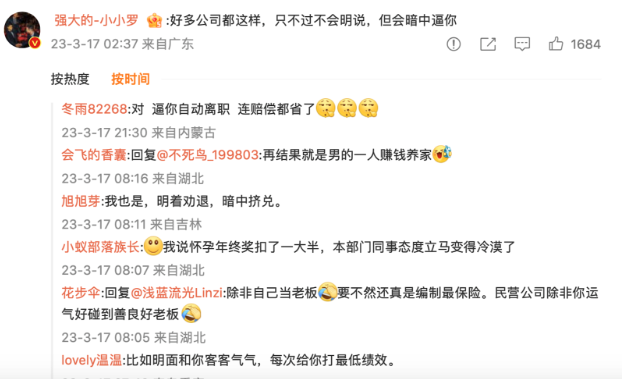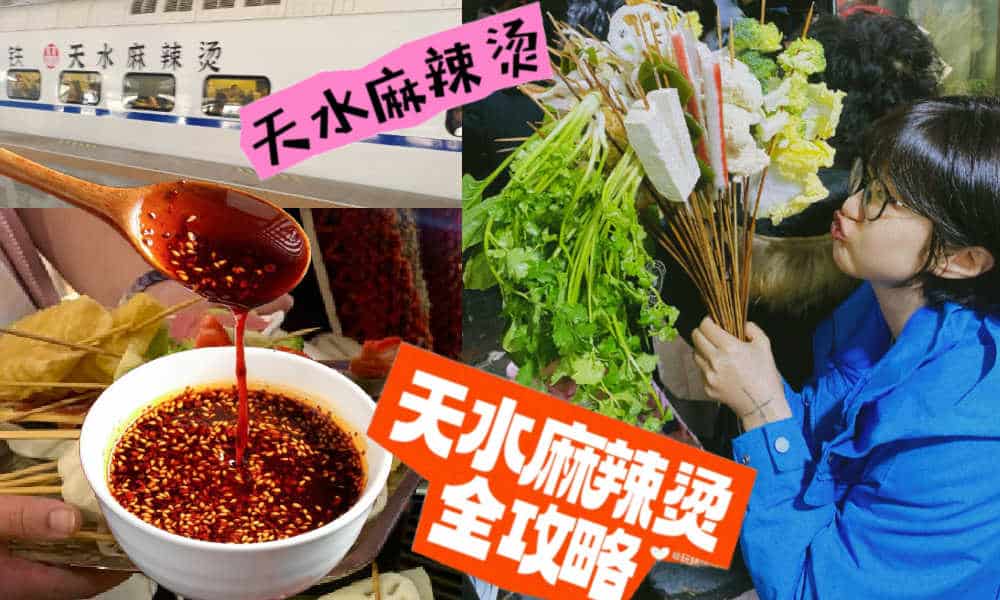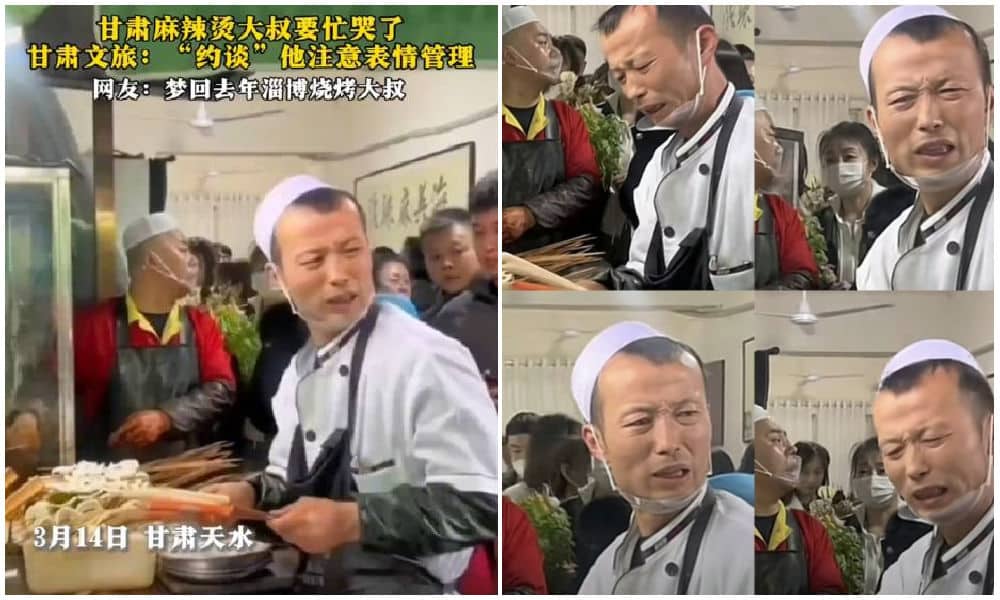China Insight
Pregnancy Discrimination in the Workplace: Three Major Problems Faced by Chinese Female Workers
Weibo discussions about a woman from Wuhan who was fired after sharing news of her pregnancy for “inability” to do her job.
Published
1 year agoon
By
Zilan Qian
Workplace pregnancy and maternity discrimination is a deep-rooted problem that has recently triggered online discussions in China, where netizens highlight common ways in which companies still try to avoid dealing with pregnant workers.
The official Weibo account of Legal Daily (法治日报), a Chinese state-owned newspaper, recently launched a social media hashtag about employers not being allowed to terminate female employees because they are pregnant (#不得因怀孕辞退女职工#).
Legal Daily reported that a female employee in Wuhan was fired from her job due to her pregnancy earlier this year (#武汉一女子怀孕后遭公司辞退#). After returning to work after the Spring Festival break, the woman informed the company about her pregnancy. In early February, the company asked her to accept a demotion and salary reduction, which she declined. Later that month, she received a termination letter from the company, stating that the employee was being terminated due to her “inability to do her job.”

A screenshot of a video posted on Weibo reporting the news about the female Wuhan employee terminated from her job because of her pregnancy. In the video, the woman disagreed with the company’s statement that she could not perform her duties.
Legal Daily‘s Weibo account cited Article 5 of the “Special Provisions on Labor Protection for Female Employees,” which prohibits employers from reducing the wages of female employees or terminating their employment contract due to them being pregnant, giving birth, or breastfeeding. It also stipulates a basic maternity leave of 98 days.
The female employee in question is currently suing the company for terminating her job. While this case may have a positive outcome, the issue of workplace discrimination against female employees due to pregnancy is more complicated than it appears, regardless of the Chinese laws designed to protect female workers.
Despite legal prohibitions against pregnancy discrimination in employment, some employers still circumvent the rules in various ways and in doing so, continue to engage in discrimination against female workers. This topic has recently also generated discussions on Chinese social media about the problems women face in the workplace.
Problem #1: Companies Not Hiring Female Workers At All
“It [the law] is not very useful,” one Weibo user wrote under the related hashtag: “Companies do not usually fire female workers who are pregnant. They will solve the problem from the beginning by not hiring female workers at all.”
Some smaller private companies do not want to take the risk of dealing with potentially prolonged maternity leave and pregnant workers that they cannot fire nor reduce their wages.
They also fear that workers who are pregnant or are taking care of young children will have reduced energy and might face challenges in the workplace. To avoid the presumed risk that comes with hiring a female worker, Weibo commenters discuss how many companies would “rather hire men directly” to evade the issue of dealing with pregnant workers altogether.

Weibo users commenting that small companies would rather hire men than afford the potential cost of female workers’ maternity leave.
Some voices note how female job-seekers are facing gender discrimination in hiring, regardless of their marital status or the number of children they have.
Another post under the same hashtag (#不得因怀孕辞退女职工#) mentioned:
“It is so hard for females to find jobs. [From the company’s perspective:] 1. Unmarried female: they’re here for the marriage leave; 2. Married but no children yet: they’re here for the pregnancy leave; 3. Married and have one child: here to have their second child (and the maternity leave); 4. Married and have two children: here to have their third child (and the maternity leave); 5. Married and have three children: they have no time for work because need to take care of the family; 6. Do not want to marry: they are having problematic thoughts [思想有问题].”
Problem #2: Going to Extremes to Avoid Paying for Maternity Leave
Despite Chinse labor law prohibiting companies from reducing wages or terminating the contracts of pregnant employees, some companies still attempt to circumvent paying for maternity leave through various means, as was the case with the Wuhan company.
One extreme way to avoid dealing with maternity leave pay is to cancel the company’s registration altogether, which is also called “dying together” (“同归于尽”, also: “to perish together with one’s foe”).
A recent news story about a boss who canceled his company’s registration overnight due to a female employee’s pregnancy received widespread attention on the internet.
According to a March 5 report by Netease (网易), the woman informed her boss that she was three months pregnant right after signing her work contract. The boss was so afraid of the potential costs for maternity leave pay and other benefits that he decided to immediately cancel the company’s registration.
While the boss claimed that the cancellation was due to the fact that the company was operating at a loss for the past two years, he reportedly spoke with each employee and compensated them accordingly. However, the pregnant female employee in question refused to leave. After the cancellation, the boss formed a new company including all the former employees – except for the pregnant one.
While some netizens expressed concerns over the extreme actions of the company, others also blamed the woman for “blackmailing” the company into supporting her pregnancy and childbirth. Additionally, many netizens argued that the woman’s actions also make it more difficult for other job-seeking females to find employment, especially with small companies that may become more cautious about hiring female workers.
Problem #3: Maternity Harassment on the Workfloor
“Dying together” is not the only way for companies to get rid of “troublesome” pregnant workers. There are many other low-cost ways to avoid dealing with pregnant employees and working mothers, such as making life in the workplace so difficult for them that they will voluntarily resign.
In Chinese, this kind of ‘maternity harassment’ is also called “chuān xiǎo xié” (穿小鞋), which literally means giving someone tight shoes to wear and making them uncomfortable. The phenomenon is also widespread in Japan, where the word ‘matahara‘ was coined as an abbreviated form of the words ‘maternity’ and ‘harassment’ to describe the unfair treatment of pregnant women and young mothers in the workforce.

Image showing Chinese comedian Papi Jiang talking about women in the workplace being afraid to get pregnant as it might cost them their career.
By pushing employees to resign voluntarily, the company not only saves on the costs of female workers’ maternity leave pay but also avoids paying for a severance package.
Under the report by Jingshi Live-Streaming (经视直播) about the woman in Wuhan who was fired from her job due to her pregnancy, one Weibo user commented that many companies fire female workers who are pregnant, but they usually do not state it upfront and instead secretly force them to leave.
This comment received over 1500 likes, with many sharing their own similar experiences. One person wrote: “I was in that situation. The company explicitly persuaded me to resign and covertly marginalized me.”

Weibo users sharing their experiences of being forced to “voluntarily resign.”
Another person shared: “After I announced my pregnancy, my year-end bonus was reduced by more than half, and my colleagues immediately treated me with coldness.” One woman mentioned that “companies overtly use polite language while covertly giving the lowest performance evaluation to force employees to resign.”
One Weibo user complained about how female workers first face nagging questions about their future plans to have children, then face criticism from employees and colleagues after announcing their pregnancy and then have to worry about getting fired or seeing their salary reduced after giving birth.
No Way Out?
Despite laws and regulations requiring companies to provide maternity leave for female employees, there are still loopholes that are used by businesses to avoid responsibility. This leaves women in a vulnerable position in the workplace and limits economic opportunities. Weibo users come up with several suggestions in recent online discussions on how to solve the problems female workers face.
Some suggest that women should “just be realistic” and settle for a second-best option (“退而求其次”). One Weibo post argued that since it is difficult for women to secure permanent positions in both government institutions and big private companies, they should consider becoming temporary workers in government departments as a secondary option.
Others disagreed with this hot take, stating that the average wages and benefits for temporary workers in government departments are not enough to make a living.
Another suggestion raised to combat pregnancy discrimination is to offer equal parental leave to both men and women. However, this proposal was also met with resistance from some who argued that it does not solve anything since fathers have the option to forgo paternity leave, but women do not have that choice. They also cited examples of male colleagues who voluntarily waived their 15-day paternity leave.
Some are skeptical about finding a solution to the problem of women facing pregnancy discrimination in the workplace, and also raise the issue of this problem decreasing women’s willingness to have babies at all. Some netizens jokingly comment: “Do women need to provide their certificate of sterilization from the hospitals?” or “I suggest females just remove the uterus [as a solution].”
Facing low fertility rates and a large aging population, boosting birthrates is a priority for Chinese authorities. While Chinese experts look for ways to motivate couples to have (more) children at an earlier age, combating pregnancy discrimination in the workplace is also more important than ever.
One Weibo user bitterly joked about the apparent contradiction of boosting national birth rates while also promoting equal positions in the workplace:
“Women say: “If I get pregnant, I will face workplace discrimination.”
The government says: “How dare companies discriminate against women? I will fine them.”
Companies say: “You’re good at playing tricks. I won’t hire women anymore.”
Women say: “If I have a child, I can’t even find a job. I won’t have children in the future.”
Society says: “China is getting old before it gets rich. What should we do?”
The media says: “There is news every day. It’s great!”
By Zilan Qian
Get the story behind the hashtag. Subscribe to What’s on Weibo here to receive our newsletter and get access to our latest articles. Follow us on Twitter here.
◼︎ 同归于尽 Tóng guī yú jìn
Dying together; suffering a downfall together; perishing together with one’s foe
◼︎ 穿小鞋 Chuān xiǎo xié
Giving someone tight shoes to wear; making things hard for someone by abusing one’s power
◼︎ 退而求其次 Tuì ér qíu qí cì
To settle for the second best thing
Images in featured image:
http://www.xinqtech.com/startup/201806/291055.html
https://www.maxlaw.cn/n/20220316/10379852097730.shtml
https://www.maxlaw.cn/n/20180823/923419931554.shtml
https://www.sohu.com/a/325722786_120156585
http://k.sina.com.cn/article_2090512390_7c9ab00602000n007.html
Spotted a mistake or want to add something? Please let us know in comments below or email us. First-time commenters, please be patient – we will have to manually approve your comment before it appears.
©2023 Whatsonweibo. All rights reserved. Do not reproduce our content without permission – you can contact us at info@whatsonweibo.com
Zilan Qian is a China-born undergraduate student at Barnard College majoring in Anthropology. She is interested in exploring different cultural phenomena, loves people-watching, and likes loitering in supermarkets and museums.

China Brands, Marketing & Consumers
A Brew of Controversy: Lu Xun and LELECHA’s ‘Smoky’ Oolong Tea
Chinese tea brand LELECHA faced backlash for using the iconic literary figure Lu Xun to promote their “Smoky Oolong” milk tea, sparking controversy over the exploitation of his legacy.
Published
6 days agoon
May 3, 2024
It seemed like such a good idea. For this year’s World Book Day, Chinese tea brand LELECHA (乐乐茶) put a spotlight on Lu Xun (鲁迅, 1881-1936), one of the most celebrated Chinese authors the 20th century and turned him into the the ‘brand ambassador’ of their special new “Smoky Oolong” (烟腔乌龙) milk tea.
LELECHA is a Chinese chain specializing in new-style tea beverages, including bubble tea and fruit tea. It debuted in Shanghai in 2016, and since then, it has expanded rapidly, opening dozens of new stores not only in Shanghai but also in other major cities across China.
Starting on April 23, not only did the LELECHA ‘Smoky Oolong” paper cups feature Lu Xun’s portrait, but also other promotional materials by LELECHA, such as menus and paper bags, accompanied by the slogan: “Old Smoky Oolong, New Youth” (“老烟腔,新青年”). The marketing campaign was a joint collaboration between LELECHA and publishing house Yilin Press.

Lu Xun featured on LELECHA products, image via Netease.
The slogan “Old Smoky Oolong, New Youth” is a play on the Chinese magazine ‘New Youth’ or ‘La Jeunesse’ (新青年), the influential literary magazine in which Lu’s famous short story, “Diary of a Madman,” was published in 1918.
The design of the tea featuring Lu Xun’s image, its colors, and painting style also pay homage to the era in which Lu Xun rose to prominence.
Lu Xun (pen name of Zhou Shuren) was a leading figure within China’s May Fourth Movement. The May Fourth Movement (1915-24) is also referred to as the Chinese Enlightenment or the Chinese Renaissance. It was the cultural revolution brought about by the political demonstrations on the fourth of May 1919 when citizens and students in Beijing paraded the streets to protest decisions made at the post-World War I Versailles Conference and called for the destruction of traditional culture[1].
In this historical context, Lu Xun emerged as a significant cultural figure, renowned for his critical and enlightened perspectives on Chinese society.
To this day, Lu Xun remains a highly respected figure. In the post-Mao era, some critics felt that Lu Xun was actually revered a bit too much, and called for efforts to ‘demystify’ him. In 1979, for example, writer Mao Dun called for a halt to the movement to turn Lu Xun into “a god-like figure”[2].
Perhaps LELECHA’s marketing team figured they could not go wrong by creating a milk tea product around China’s beloved Lu Xun. But for various reasons, the marketing campaign backfired, landing LELECHA in hot water. The topic went trending on Chinese social media, where many criticized the tea company.
Commodification of ‘Marxist’ Lu Xun
The first issue with LELECHA’s Lu Xun campaign is a legal one. It seems the tea chain used Lu Xun’s portrait without permission. Zhou Lingfei, Lu Xun’s great-grandson and president of the Lu Xun Cultural Foundation, quickly demanded an end to the unauthorized use of Lu Xun’s image on tea cups and other merchandise. He even hired a law firm to take legal action against the campaign.
Others noted that the image of Lu Xun that was used by LELECHA resembled a famous painting of Lu Xun by Yang Zhiguang (杨之光), potentially also infringing on Yang’s copyright.
But there are more reasons why people online are upset about the Lu Xun x LELECHA marketing campaign. One is how the use of the word “smoky” is seen as disrespectful towards Lu Xun. Lu Xun was known for his heavy smoking, which ultimately contributed to his early death.
It’s also ironic that Lu Xun, widely seen as a Marxist, is being used as a ‘brand ambassador’ for a commercial tea brand. This exploits Lu Xun’s image for profit, turning his legacy into a commodity with the ‘smoky oolong’ tea and related merchandise.
“Such blatant commercialization of Lu Xun, is there no bottom limit anymore?”, one Weibo user wrote. Another person commented: “If Lu Xun were still alive and knew he had become a tool for capitalists to make money, he’d probably scold you in an article. ”
On April 29, LELECHA finally issued an apology to Lu Xun’s relatives and the Lu Xun Cultural Foundation for neglecting the legal aspects of their marketing campaign. They claimed it was meant to promote reading among China’s youth. All Lu Xun materials have now been removed from LELECHA’s stores.

Statement by LELECHA.
On Chinese social media, where the hot tea became a hot potato, opinions on the issue are divided. While many netizens think it is unacceptable to infringe on Lu Xun’s portrait rights like that, there are others who appreciate the merchandise.
The LELECHA controversy is similar to another issue that went trending in late 2023, when the well-known Chinese tea chain HeyTea (喜茶) collaborated with the Jingdezhen Ceramics Museum to release a special ‘Buddha’s Happiness’ (佛喜) latte tea series adorned with Buddha images on the cups, along with other merchandise such as stickers and magnets. The series featured three customized “Buddha’s Happiness” cups modeled on the “Speechless Bodhisattva” (无语菩萨), which soon became popular among netizens.

The HeyTea Buddha latte series, including merchandise, was pulled from shelves just three days after its launch.
However, the ‘Buddha’s Happiness’ success came to an abrupt halt when the Ethnic and Religious Affairs Bureau of Shenzhen intervened, citing regulations that prohibit commercial promotion of religion. HeyTea wasted no time challenging the objections made by the Bureau and promptly removed the tea series and all related merchandise from its stores, just three days after its initial launch.
Following the Happy Buddha and Lu Xun milk tea controversies, Chinese tea brands are bound to be more careful in the future when it comes to their collaborative marketing campaigns and whether or not they’re crossing any boundaries.
Some people couldn’t care less if they don’t launch another campaign at all. One Weibo user wrote: “Every day there’s a new collaboration here, another one there, but I’d just prefer a simple cup of tea.”
By Manya Koetse
[1]Schoppa, Keith. 2000. The Columbia Guide to Modern Chinese History. New York: Columbia UP, 159.
[2]Zhong, Xueping. 2010. “Who Is Afraid Of Lu Xun? The Politics Of ‘Debates About Lu Xun’ (鲁迅论争lu Xun Lun Zheng) And The Question Of His Legacy In Post-Revolution China.” In Culture and Social Transformations in Reform Era China, 257–284, 262.
Independently reporting China trends for over a decade. Like what we do? Support us and get the story behind the hashtag by subscribing:
Spotted a mistake or want to add something? Please let us know in comments below or email us. First-time commenters, please be patient – we will have to manually approve your comment before it appears.
©2024 Whatsonweibo. All rights reserved. Do not reproduce our content without permission – you can contact us at info@whatsonweibo.com.
China Brands, Marketing & Consumers
More than Malatang: Tianshui’s Recipe for Success
Zibo had its BBQ moment. Now, it’s Tianshui’s turn to shine with its special take on malatang. Tourism marketing in China will never be the same again.
Published
1 month agoon
April 1, 2024
Since the early post-pandemic days, Chinese cities have stepped up their game to attract more tourists. The dynamics of Chinese social media make it possible for smaller, lesser-known destinations to gain overnight fame as a ‘celebrity city.’ Now, it’s Tianshui’s turn to shine.
During this Qingming Festival holiday, there is one Chinese city that will definitely welcome more visitors than usual. Tianshui, the second largest city in Gansu Province, has emerged as the latest travel hotspot among domestic tourists following its recent surge in popularity online.
Situated approximately halfway along the Lanzhou-Xi’an rail line, this ancient city wasn’t previously a top destination for tourists. Most travelers would typically pass through the industrial city to see the Maiji Shan Grottoes, the fourth largest Buddhist cave complex in China, renowned for its famous rock carvings along the Silk Road.
But now, there is another reason to visit Tianshui: malatang.
Gansu-Style Malatang
Málàtàng (麻辣烫), which literally means ‘numb spicy hot,’ is a popular Chinese street food dish featuring a diverse array of ingredients cooked in a soup base infused with Sichuan pepper and dried chili pepper. There are multiple ways to enjoy malatang.
When dining at smaller street stalls, it’s common to find a selection of skewered foods—ranging from meats to quail eggs and vegetables—simmering in a large vat of flavorful spicy broth. This communal dining experience is affordable and convenient for solo diners or smaller groups seeking a hotpot-style meal.
In malatang restaurants, patrons can usually choose from a selection of self-serve skewered ingredients. You have them weighed, pay, and then have it prepared and served in a bowl with a preferred soup base, often with the option to choose the level of spiciness, from super hot to mild.

Although malatang originated in Sichuan, it is now common all over China. What makes Tianshui malatang stand out is its “Gansu-style” take, with a special focus on hand-pulled noodles, potato, and spicy oil.
An important ingredient for the soup base is the somewhat sweet and fragrant Gangu chili, produced in Tianshui’s Gangu County, known as “the hometown of peppers.”
Another ingredient is Maiji peppercorns (used in the sauce), and there are more locally produced ingredients, such as the black fungi from Qingshui County.

One restaurant that made Tianshui’s malatang particularly famous is Haiying Malatang (海英麻辣烫) in the city’s Qinzhou District. On February 13, the tiny restaurant, which has been around for three decades, welcomed an online influencer (@一杯梁白开) who posted about her visit.
The vlogger was so enthusiastic about her taste of “Gansu-style malatang,” that she urged her followers to try it out. It was the start of something much bigger than she could have imagined.
Replicating Zibo
Tianshui isn’t the first city to capture the spotlight on Chinese social media. Cities such as Zibo and Harbin have previously surged in popularity, becoming overnight sensations on platforms like Weibo, Xiaohongshu, and Douyin.
This phenomenon of Chinese cities transforming into hot travel destinations due to social media frenzy became particularly noteworthy in early 2023.
During the Covid years, various factors sparked a friendly competition among Chinese cities, each competing to attract the most visitors and to promote their city in the best way possible.
The Covid pandemic had diverse impacts on the Chinese domestic tourism industry. On one hand, domestic tourism flourished due to the pandemic, as Chinese travelers opted for destinations closer to home amid travel restrictions. On the other hand, the zero-Covid policy, with its lockdowns and the absence of foreign visitors, posed significant challenges to the tourism sector.
Following the abolition of the zero-Covid policy, tourism and marketing departments across China swung into action to revitalize their local economy. China’s social media platforms became battlegrounds to capture the attention of Chinese netizens. Local government officials dressed up in traditional outfits and created original videos to convince tourists to visit their hometowns.
Zibo was the first city to become an absolute social media sensation in the post-Covid era. The old industrial and mining city was not exactly known as a trendy tourist destination, but saw its hotel bookings going up 800% in 2023 compared to pre-Covid year 2019. Among others factors contributing to its success, the city’s online marketing campaign and how it turned its local BBQ culture into a unique selling point were both critical.

Zibo crowds, image via 163.com.
Since 2023, multiple cities have tried to replicate the success of Zibo. Although not all have achieved similar results, Harbin has done very well by becoming a meme-worthy tourist attraction earlier in 2024, emphasizing its snow spectacle and friendly local culture.
By promoting its distinctive take on malatang, Tianshui has emerged as the next city to captivate online audiences, leading to a surge in visitor numbers.
Like with Zibo and Harbin, one particular important strategy used by these tourist offices is to swiftly respond to content created by travel bloggers or food vloggers about their cities, boosting the online attention and immediately seizing the opportunity to turn online success into offline visits.
A Timeline
What does it take to become a Chinese ‘celebrity city’? Since late February and early March of this year, various Douyin accounts started posting about Tianshui and its malatang.
They initially were the main reason driving tourists to the city to try out malatang, but they were not the only reason – city marketing and state media coverage also played a role in how the success of Tianshui played out.
Here’s a timeline of how its (online) frenzy unfolded:
- July 25, 2023: First video on Douyin about Tianshui’s malatang, after which 45 more videos by various accounts followed in the following six months.
- Feb 5, 2024: Douyin account ‘Chuanshuo Zhong de Bozi’ (传说中的波仔) posts a video about malatang streetfood in Gansu
- Feb 13, 2024: Douyin account ‘Yibei Liangbaikai’ (一杯梁白开) posts a video suggesting the “nationwide popularization of Gansu-style malatang.” This video is an important breakthrough moment in the success of Tianshui as a malatang city.
- Feb – March ~, 2024: The Tianshui Culture & Tourism Bureau is visiting sites, conducting research, and organizing meetings with different departments to establish the “Tianshui city + malatang” brand (文旅+天水麻辣烫”品牌) as the city’s new “business card.”
- March 11, 2024: Tianshui city launches a dedicated ‘spicy and hot’ bus line to cater to visitors who want to quickly reach the city’s renowned malatang spots.
- March 13-14, 2024: China’s Baidu search engine witnesses exponential growth in online searches for Tianshui malatang.
- March 14-15, 2024: The boss of Tianshui’s popular Haiying restaurant goes viral after videos show him overwhelmed and worried he can’t keep up. His facial expression becomes a meme, with netizens dubbing it the “can’t keep up-expression” (“烫不完表情”).

The worried and stressed expression of this malatang diner boss went viral overnight.
- March 17, 2024: Chinese media report about free ‘Tianshui malatang’ wifi being offered to visitors as a special service while they’re standing in line at malatang restaurants.
- March 18, 2024: Tianshui opens its first ‘Malatang Street’ where about 40 stalls sell malatang.
- March 18, 2024: Chinese local media report that one Tianshui hair salon (Tony) has changed its shop into a malatang shop overnight, showing just how big the hype has become.
- March 21, 2024: A dedicated ‘Tianshui malatang’ train started riding from Lanzhou West Station to Tianshui (#天水麻辣烫专列开行#).
- March 21, 2024: Chinese actor Jia Nailiang (贾乃亮) makes a video about having Tianshui malatang, further adding to its online success.
- March 30, 2024: A rare occurrence: as the main attraction near Tianshui, the Maiji Mountain Scenic Area announces that they’ve reached the maximum number of visitors and don’t have the capacity to welcome any more visitors, suspending all ticket sales for the day.
- April 1, 2024: Chinese presenter Zhang Dada was spotted making malatang in a local Tianshui restaurant, drawing in even more crowds.
A New Moment to Shine
Fame attracts criticism, and that also holds true for China’s ‘celebrity cities.’
Some argue that Tianshui’s malatang is overrated, considering the richness of Gansu cuisine, which offers much more than just malatang alone.
When Zibo reached hype status, it also faced scrutiny, with some commenters suggesting that the popularity of Zibo BBQ was a symptom of a society that’s all about consumerism and “empty social spectacle.”
There is a lot to say about the downsides of suddenly becoming a ‘celebrity city’ and the superficiality and fleetingness that comes with these kinds of trends. But for many locals, it is seen as an important moment as they see their businesses and cities thrive.
Even after the hype fades, local businesses can maintain their success by branding themselves as previously viral restaurants. When I visited Zibo a few months after its initial buzz, many once-popular spots marketed themselves as ‘wanghong’ (网红) or viral celebrity restaurants.
For the city itself, being in the spotlight holds its own value in the long run. Even after the hype has peaked and subsided, the gained national recognition ensures that these “trendy” places will continue to attract visitors in the future.
According to data from Ctrip, Tianshui experienced a 40% increase in tourism spending since March (specifically from March 1st to March 16th). State media reports claim that the city saw 2.3 million visitors in the first three weeks of March, with total tourism revenue reaching nearly 1.4 billion yuan ($193.7 million).
There are more ripple effects of Tianshui’s success: Maiji Shan Grottoes are witnessing a surge in visitors, and local e-commerce companies are experiencing a spike in orders from outside the city. Even when they’re not in Tianshui, people still want a piece of Tianshui.
By now, it’s clear that tourism marketing in China will never be the same again. Zibo, Harbin, and Tianshui exemplify a new era of destination hype, requiring a unique selling point, social media success, strong city marketing, and a friendly and fair business culture at the grassroots level.
While Zibo’s success was largely organic, Harbin’s was more orchestrated, and Tianshui learned from both. Now, other potential ‘celebrity’ cities are preparing to go viral, learning from the successes and failures of their predecessors to shine when their time comes.
By Manya Koetse
Independently reporting China trends for over a decade. Like what we do? Support us and get the story behind the hashtag by subscribing:
Spotted a mistake or want to add something? Please let us know in comments below or email us. First-time commenters, please be patient – we will have to manually approve your comment before it appears.
©2024 Whatsonweibo. All rights reserved. Do not reproduce our content without permission – you can contact us at info@whatsonweibo.com.
Subscribe

A Brew of Controversy: Lu Xun and LELECHA’s ‘Smoky’ Oolong Tea

Weibo Watch: The Battle for the Bottom Bed

Zara Dress Goes Viral in China for Resemblance to Haidilao Apron

“Old Bull Eating Young Grass”: 86-Year-Old Chinese Painter Fan Zeng Marries 36-Year-Old Xu Meng

Chengdu Disney: The Quirkiest Hotspot in China

The ‘Two Sessions’ Suggestions: Six Proposals Raising Online Discussions

Top 9 Chinese Movies to Watch This Spring Festival Holiday

“Old Bull Eating Young Grass”: 86-Year-Old Chinese Painter Fan Zeng Marries 36-Year-Old Xu Meng

Party Slogan, Weibo Hashtag: “The Next China Will Still Be China”

From Pitch to Politics: About the Messy Messi Affair in Hong Kong (Updated)

Chengdu Disney: The Quirkiest Hotspot in China

Looking Back on the 2024 CMG Spring Festival Gala: Highs, Lows, and Noteworthy Moments

More than Malatang: Tianshui’s Recipe for Success

The Chinese Viral TikTok Song Explained (No, It’s Not About Samsung)

Two Years After MU5735 Crash: New Report Finds “Nothing Abnormal” Surrounding Deadly Nose Dive
Get in touch
Would you like to become a contributor, or do you have any tips or suggestions? Get in touch here!
Popular Reads
-

 China Insight2 months ago
China Insight2 months agoThe ‘Two Sessions’ Suggestions: Six Proposals Raising Online Discussions
-

 China Arts & Entertainment3 months ago
China Arts & Entertainment3 months agoTop 9 Chinese Movies to Watch This Spring Festival Holiday
-

 China Arts & Entertainment3 weeks ago
China Arts & Entertainment3 weeks ago“Old Bull Eating Young Grass”: 86-Year-Old Chinese Painter Fan Zeng Marries 36-Year-Old Xu Meng
-

 China Media2 months ago
China Media2 months agoParty Slogan, Weibo Hashtag: “The Next China Will Still Be China”



